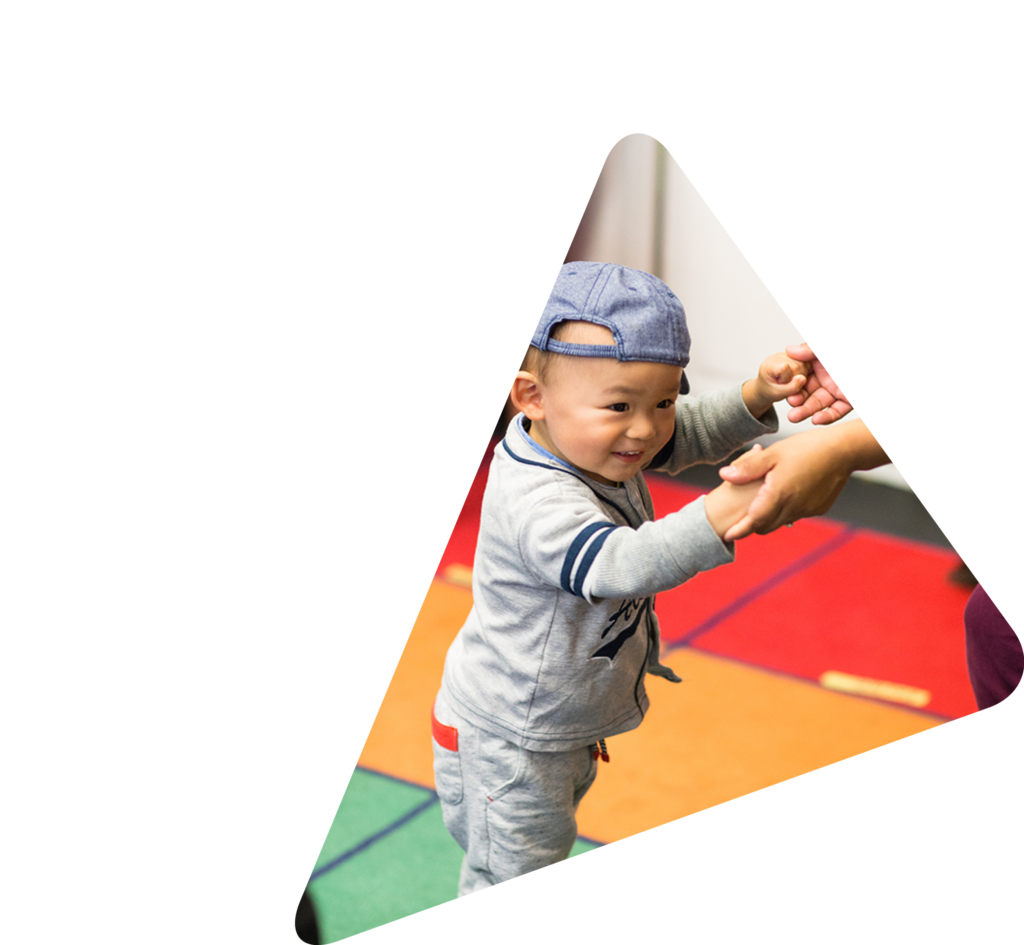Child Development
All children deserve to reach their full potential. Early intervention makes that possible.
The Department of Early Childhood offers free developmental screenings. Early intervention services are available to children who need them.
What is a developmental screening?
A developmental screening looks at how a child moves, plays, and talks at different ages. They can tell you if your child’s development is on track. You can make sure your child is getting what they need.
Finding delays early is important. Getting extra help as soon as possible can make a big difference for your child.

How to Get a Developmental Screening
Babies and children should get developmental screenings. There are different ways to get a free screening in San Francisco.
At your pediatrician’s office
Pediatricians screen children birth to age 3. Ask your pediatrician for a developmental screening. They can also answer your questions about your child’s development.
At your child care program
All child care programs in the City-funded network of Early Learning For All programs screen children ages 3-5. DEC helps them with this. Ask your child’s teacher or provider if they screen your child.
At a Family Resource Center
There are 26 family resource centers in San Francisco. They offer many free services for families including free developmental screenings. Drop in or contact them to get a free screening.
Through the Department of Early Childhood
DEC partners with Support for Families to give children free developmental screenings. If your child hasn’t had a developmental screening, contact info@supportforfamilies.org. You can get a free screening and support.
What to Do When Concerns Come Up
All children develop at their own pace–every child is different! But a screening can tell you if there are any concerns. If there is, you’ll have access to services to help.
If you, your child’s doctor, or another care provider is worried about your child’s development, you can get help. Ask them to connect you with an early intervention program. You can also reach out yourself. A doctor’s referral is not necessary. Your child will get a developmental evaluation. These programs also provide services for free or at a low cost for any child who is eligible.
- If your child is under age 3:
- If your child is 3 or older:
Support for Families can help you get an evaluation. They can help with the eligibility process. They are your advocates!
For more community support, check out our family resource center calendar. You can find parent workshops and support groups.
More About Developmental Milestones
Milestones tell you how kids move, play, and talk at specific ages. All children develop at their own pace. But milestones can help you know if your child is on track for his or her age. This list shows you some examples of milestones.
By 3 Months
- Lifts and holds head up
- Attempts to reach for toys
- Shows interest in faces
- Coos and smiles
By 6 Months
- Begins to sit up without support
- Brings hands and objects to mouth
- Responds to their own name
- Uses babbling to get attention
By 9 Months
- Likes to look at self in a mirror
- Curious about things and try to get things that are out of reach
- Passes things between their hands
- Has favorite toys
By 18 Months
- Says several single words
- Walks by themselves
- Identifies common household items, like spoons, pillows, books
By 2 Years
- Says short sentences with two to four words
- Kicks a ball
- Points to objects or pictures when things are mentioned
By 3 Years
- Copies adults and friends
- Carries on a conversation using 2-3 sentences
- Climbs well
- Plays make believe
By 4 Years
- Hops or stand on one foot for 2 seconds
- Tells stories
- Draws people with 2 to 4 different body parts
Get Sparkler
Sparkler is a mobile app. It is for all parents and guardians with young children ages 0-5. It’s also for programs serving those families. You can use the Sparkler app to:
- Check on your child’s development
- Work with your child’s educator to help their development
- Find fun science-backed activities to do at home with your child.
Sparkler is free for all San Francisco families. Download Sparkler from the Apple App Store or Google Play. Use code SF. Or use a code from your child care program, family resource center, or healthcare provider. You can use Sparkler on smartphones or tablets. It is available in English, Spanish, and Chinese.
Early Intervention Resources
Resources for Health Care Providers
Glossary
Developmental Monitoring: Watching how your child grows. Seeing if they meet milestones for their age. Milestones are how children play, learn, speak, act, and move at each age.
Developmental screening: A standardized tool. It is either a parent questionnaire or an observation. Screenings are validated by research. Screenings help identify babies and children who are at risk for developmental delays.
Developmental Evaluation: A more in-depth look at a child’s development. If the screening finds a concern, you may need an evaluation. It shows if a child needs treatments or services. A trained specialist gives the evaluation. For example, a developmental pediatrician, a child psychologist, a speech therapist, or an occupational therapist.
Early Intervention: Services to help with developmental delays and disabilities. Examples are speech therapy and physical therapy. Services are based on the child’s needs. Early intervention can help a child learn important skills. It can help them overcome challenges. It helps them get ready for school.
Source: CDC: Learn the Signs. Act Early.
